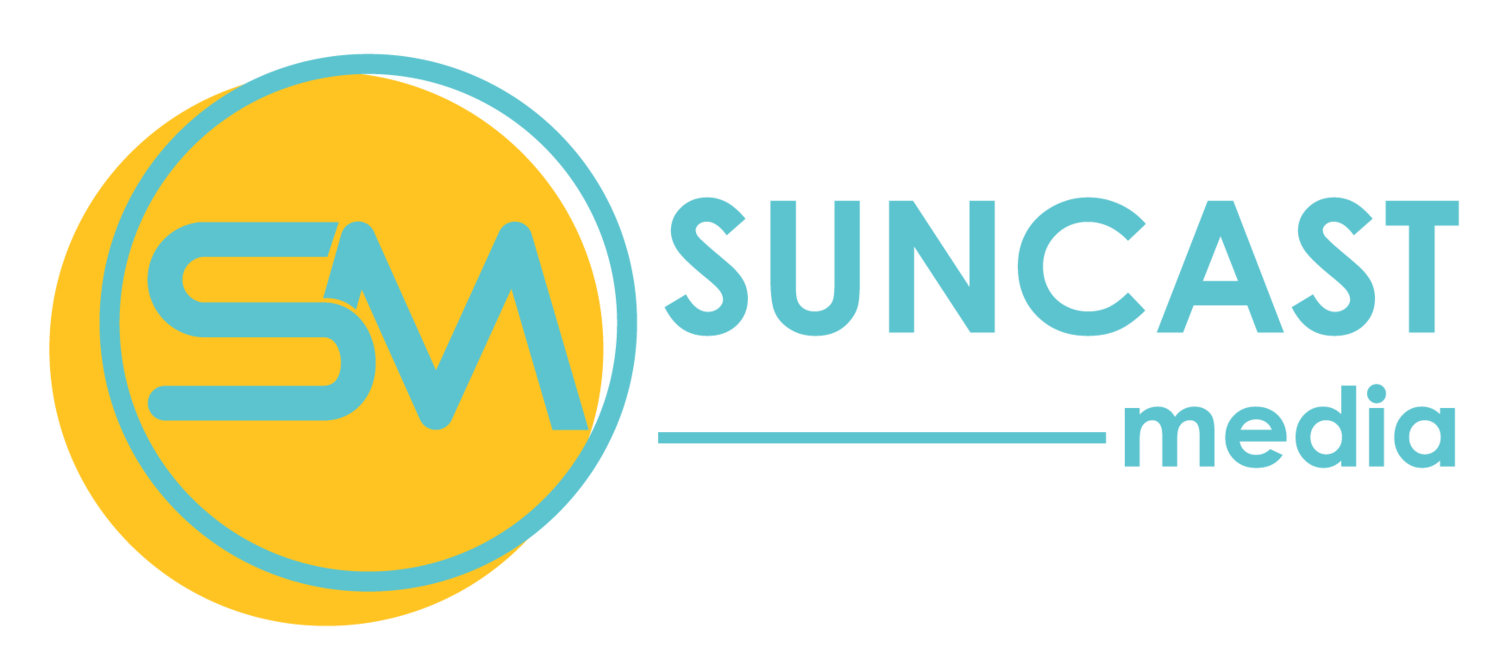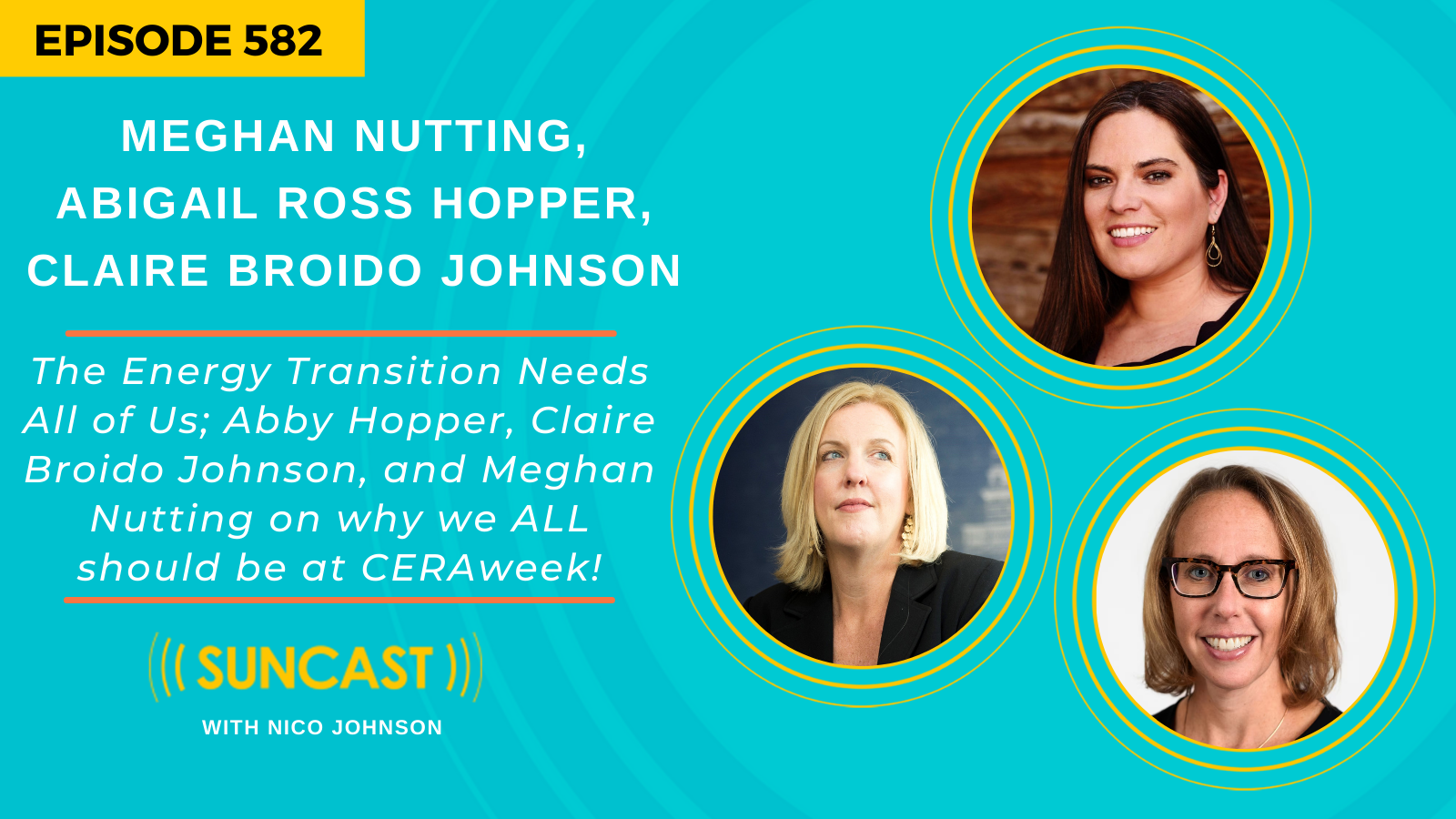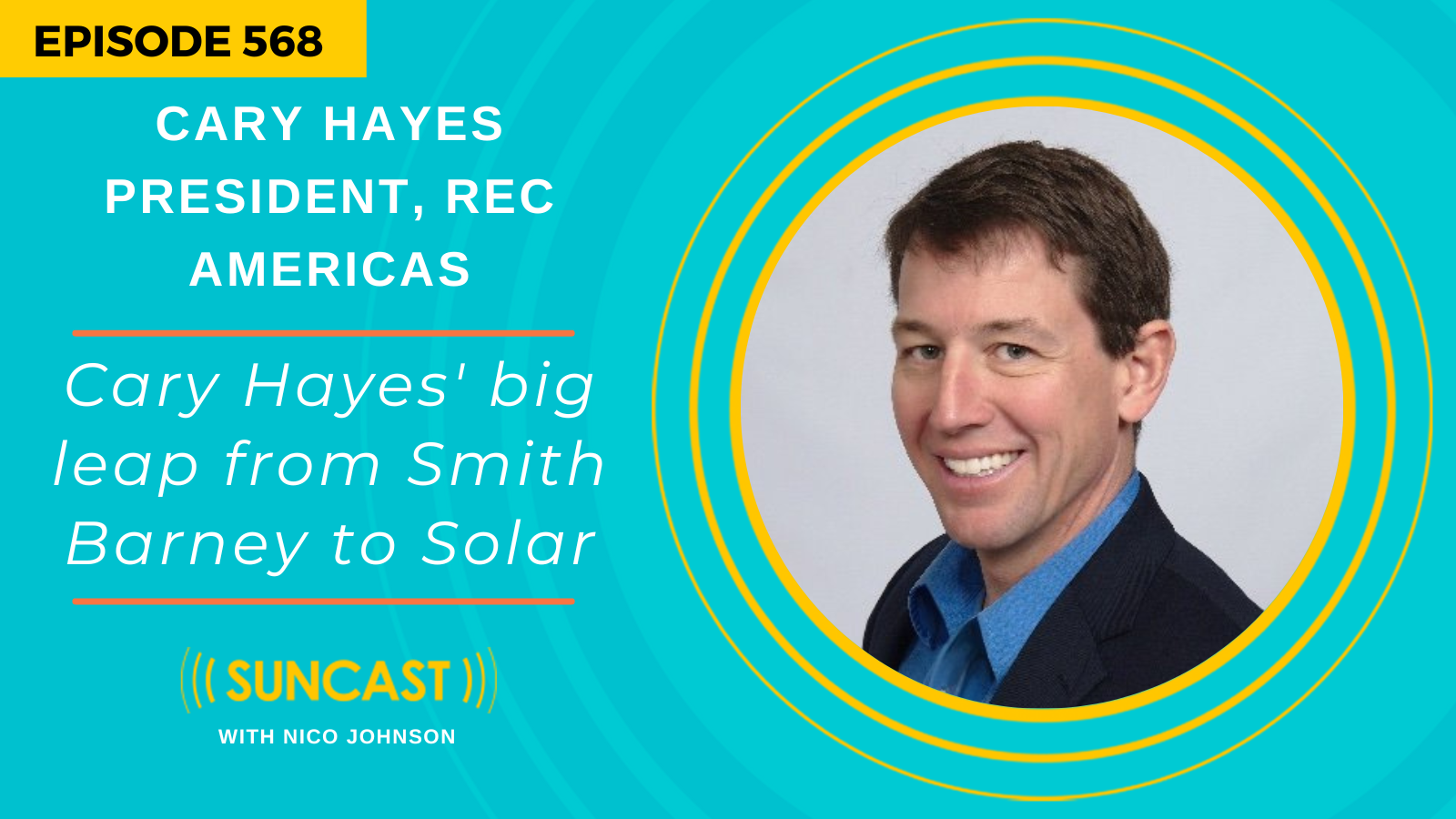We'd love if you'd leave us a 5 ⭐ rating & review and it's never been easier: www.ratethispodcast.com/suncast
Linette Casey never choose to work in the energy industry. "I just fell into it," she said.
More than two decades later, she's happy with her choice and her long-term commitment to the employer she credits for enabling her to balance work and family.
Linette Casey is Head of Americas Sales, Electrification, Automation & Digitalization (EAD) at Siemens Energy, a global market leader for renewable energies. It was created in 2020 by a spin-off from Siemens AG, where Linette worked for more than 18 years.
In today's Tactical Tuesday, I share practical, tactical information from my interview with Linette. The wide-ranging conversation traces her fascinating career journey, from pursuing ocean science and social studies to finding success in the energy industry.
She discusses how her education and experience in logistics led her to work for the U.S. Navy SEALs — the U.S. Navy's primary special operations force and a Naval Special Warfare Command component — and eventually to Siemens Energy, where she's worked her way up to managing procurement, inventory, and sales.
Linette emphasizes the importance of adaptability and problem-solving skills as navigational tools in an evolving industry. She also shares how personal choices have influenced her career path, notably leaving one position she loved to move closer to family.
Linette is a mother of three, including a daughter with special needs, and understands women's challenges in balancing work and family responsibilities.
"I had to make choices, to relocate where I had family support, to find the right place for my kids to grow up and secure the special education and treatment my daughter needed. And so, I chose to take a step back from the career ladder," she said.
She's no regrets — and only compliments for how Siemens respected and supported her decision.
"Siemens treated me like family when I needed family," she said, noting that she had 10 "super difficult" years interrupted by her daughter's multiple emergency room visits and inpatient hospital stays.
"This was all before covid — before remote working was a thing. But my boss told me to work from the hospital room if I needed to, and I did, working when my daughter was asleep. We made it work, and my team and the company rallied around me."
She said she appreciated it so much that she's stayed with the company. "Headhunters call me all the time, and I get offers. But I chose to stay because the company held me in safety, holding a space for my family and me for 10 years when I had to make decisions other than climb the corporate ladder," she said.
Linette started the Women's Energy Network, a Boston-based organization with more than 100 members representing 35 energy companies, including Siemens Energy. It aims to promote diversity and career advancement for women in the male-dominated energy industry.
She talks about the importance of mentorship and building mentees' confidence, especially women who may face limitations and stereotypes in their careers. Linette specifically recalls a female engineer who did not see herself going into a sales position because there were no other women in that role.
Linette helped build her confidence and saw her potential, allowing her to transition into the role successfully. Her efforts have not gone unnoticed.
"I recently sat with a woman I've worked with for years. We were taking pictures afterward and she said, 'Oh, I'm so glad I got to be in a picture next to you.' I thought she was just being sweet. But she said, 'No, you're really important to the company."
Linette is enthusiastic about empowering women and equally excited about the company she represents.
Siemens Energy is at the forefront of exciting innovations ranging from electric ferries that reduce emissions and noise while supporting more reliable operations to propulsion solutions that make marine vessels environmentally friendly and economically efficient. It's also accelerating the production of sustainably produced hydrogen with high-performance, industrial-scale electrolyzers that will benefit such things as steel production and aviation.
This episode offers a fascinating insight into energy innovation and the personal journey of an industry leader. Tune in to learn more about Linette Casey, her decades-spanning career and why she's so committed to working for Siemens.
NOTEWORTHY QUOTEs:
“It just takes seeing the potential in someone and just like prior bosses of mine had done that I mentioned, is really building their confidence to allow them to see their capabilities beyond what limitations have been put on them stereotypically or through whatever happened in their career up to this point.”
Thanks again to this week's sponsor, helping keep the podcast FREE to you!
SUNGROW focuses on integrated energy storage system solutions, including PCS, lithium-ion batteries and energy management system. Please visit https://www.mysuncast.com/sungrow
Speed up PV installations for lower LCOE with TrinaTracker and improve overall system value with optimized compatibility using Trina Solar’s industry-leading modules and the TrinaPro utility-scale or C&I Solutions. Please visit https://www.mysuncast.com/trina
ABOUT THE HOST OF SUNCAST:
Nico Johnson is the creator and host of SunCast, consistently rated a top solar podcast in the clean energy sector. The content of the show is geared towards listeners looking for insights on where the markets are headed, how to position themselves or their companies, and what today's market leaders do to stay ahead of the pack.
Nico is an Investor, Executive Coach, and 16-year veteran of the solar industry, having led development in the US and Latin America for global companies like Trina Solar and Conergy.
You can connect with Nico Johnson on Twitter, LinkedIn or email.
If you’ve been second-guessing your work decisions or maybe trying to reconsider how you "fit" in the renewable energy industry -> grab 20 minutes on Nico's calendar and discuss whether having him as Your personal coach might be the right next step.























